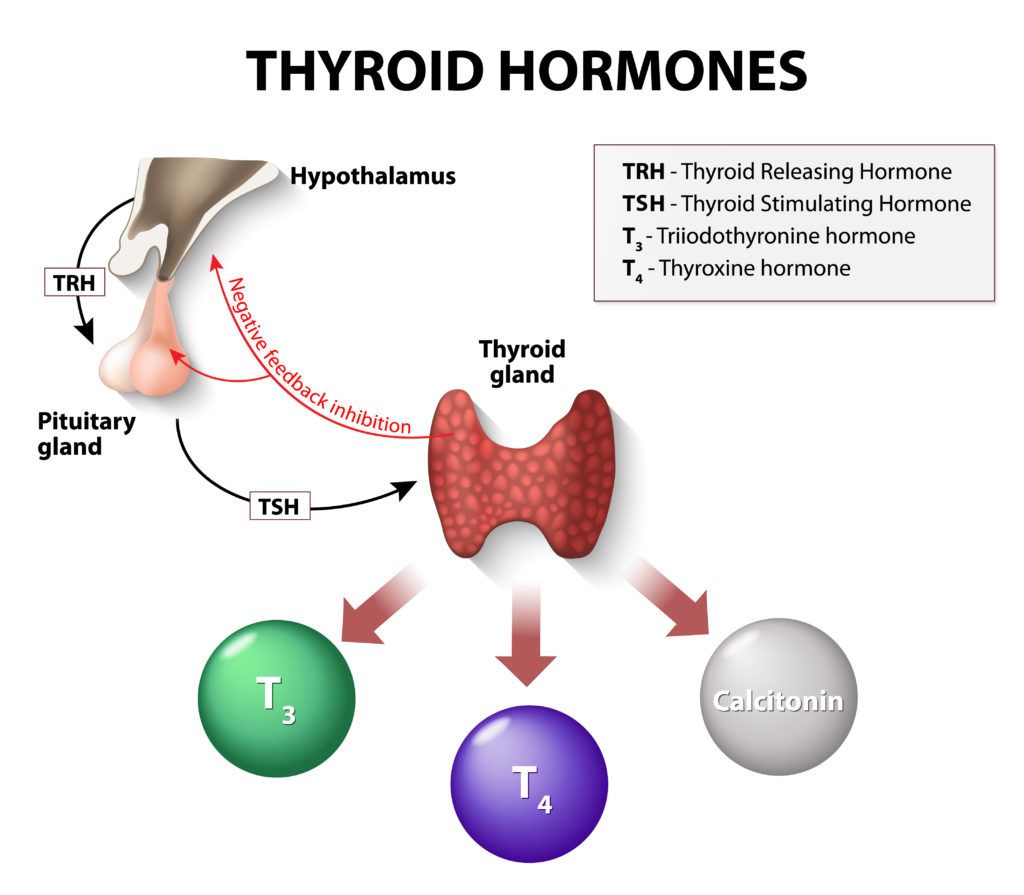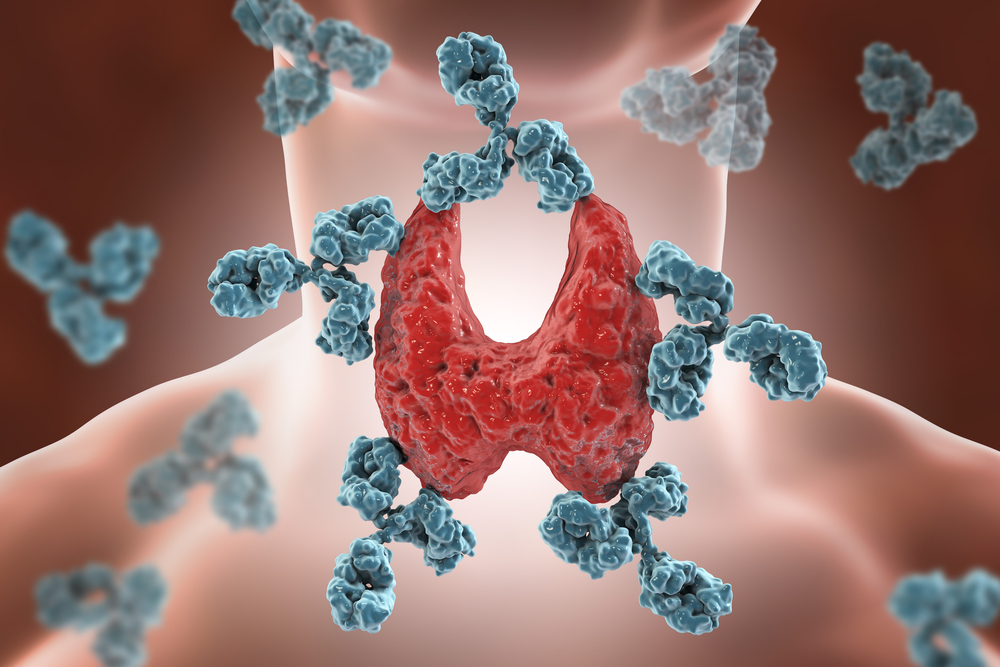What’s the Best Defense for Your Immune System? Taking a Proactive Approach to Your Health!
Building a strong immune system has different aspects, and all are equally important to increase resistance and create resilience. These can include:
- Getting plenty of quality restorative sleep
- Optimizing nutrition
- Exercise
- Creating a healthy gut microbiome
- Reducing stress and spending quality time with loved ones
Having balanced hormones is equally important, since these are the chemical messengers that our brains and bodies use to communicate with each other and achieve optimal health.
The thyroid gland is particularly important, since it regulates the metabolism and energy levels. It is also the “detox” hormone, and if it’s underperforming, it can make you more prone to acute infections and chronic illness.
Our providers at Renewed Vitality offer very comprehensive lab testing, which looks at:
- the overall health of the immune system
- inflammation levels
- organ function
- imbalances in the endocrine system
Thyroid Fundamentals

You may not know that the thyroid is a master hormone. It regulates temperature, metabolism, and cerebral function, and is a massive contributor to energy levels and the body’s ability to maintain a constant temperature.
The thyroid hormone:
- helps remove cellular waste
- increases fat breakdown
- improves hair growth of the scalp and eyebrows
- reduces cholesterol levels and body weight
- is vital to prevent cognitive deterioration.
And the thyroid hormone is critical for fertility in women. Many women who go through expensive infertility treatments simply need thyroid hormone replacement.
Think of the thyroid hormone as the overseer of the body, telling all the other organs to get to work!
Hypothyroidism
Hypothyroidism is the most common type of thyroid disorder treated at Renewed Vitality. Hypothyroidism is a condition in which the thyroid gland does not produce enough thyroid hormone to adequately drive the metabolism of the body, causing symptoms associated with a slow metabolism.
And hypothyroidism is much more prevalent than most people realize: Studies show that over 50 million Americans have this all too common medical condition.
Millions of people suffer from common symptoms of an underactive thyroid gland and may not realize that an underactive thyroid gland causes their symptoms.
Common Symptoms of Hypothyroidism
- fatigue or lack of energy
- weight gain and/or difficulty losing weight
- weakness
- dry, coarse hair
- hair loss
- dry skin
- cold intolerance, cold extremities
- muscle cramps
- frequent muscle aches
- constipation
- depression
- irritability
- memory loss
- abnormal menstrual cycles
- decreased libido
Most people have varying combinations and severity levels of these symptoms. If you have some of the above symptoms, it’s a good idea to be tested. Even if you’ve been tested before and were told that your thyroid levels are “normal,” but you’re still having symptoms, our providers can help you.
At Renewed Vitality, we do a thorough panel of tests to check out every aspect of thyroid hormone production and its utilization in the body. Our providers will check:
- TSH
- Free T3
- Free T4
- Reverse T3
- The presence of antibodies which could indicate Hashimoto’s disease. (If a provider isn’t looking at your antibodies, they may completely miss the root cause of your hypothyroidism.
Our providers are well-educated and stay up to date in order to help our patients heal. We don’t use antiquated systems of testing or reading the results, which, unfortunately, are fairly common among the medical community.
Contact Us for a Thyroid Consultation
Call 214-389-1234
Diagnosis of Hypothyroidism
It’s common practice in the medical field to only do surface-level testing for hypothyroidism. Frequently, the only blood test recommended is the Thyroid Stimulating Hormone (TSH) test.
Doctors often assume that if the pituitary is functioning and telling the thyroid gland to produce thyroid hormones (via TSH), there will be adequate amounts of active thyroid hormone in the body, and that everything is fine. Some physicians will do a little deeper testing and check T3 and T4 levels.
However, even when proper testing is done, the reference range for what is considered normal is wide. A patient can still be within the “normal” range, and be feeling terrible because they don’t have the optimum levels of active thyroid hormones in their body necessary for their own needs.
If a patient has hypothyroidism, the standard treatment is to prescribe a synthetic form of T4. But sometimes this doesn’t get converted into T3, the active form of thyroid hormone. Or worse, it’s converted to Reverse T3, which further aggravates the symptoms of hypothyroidism.
This is why so many people come through the doors of Renewed Vitality after years of not knowing why they feel awful, or after years of ineffective treatment.
The Renewed Vitality Solution for Hypothyroidism

We also do a physical examination to look for telltale signs of hypothyroidism. And we listen to the symptoms you have been experiencing and investigate until we find the root cause of the problem.
Once we have made the diagnosis for hypothyroidism, we will create and implement your personalized treatment plan. The goal of thyroid hormone replacement therapy is to compensate for the lack of hormone secreted by your thyroid gland.
There is a wide variety of types and forms of replacement thyroid hormone, but it’s important to understand that every patient’s therapy will be different. There’s no set treatment plan for thyroid hormone replacement therapy. How the body absorbs the hormones, along with the amount of hormone that it needs, is quite varied.
We will customize your treatment plan based on your precise lab results and symptoms. As such, you should expect that we will adjust dosage and forms of therapy until we have the optimal formula for you.
At Renewed Vitality, we take pride and joy in having helped hundreds of people successfully overcome hypothyroidism and restore them to their healthy and energetic life they once enjoyed!
Hashimoto’s Disease
Dr. Kakaru Hashimoto of Japan first discovered Hashimoto’s in 1912, making it the first recognized autoimmune disorder.
In Hashimoto’s, the immune system attacks the thyroid gland as if it were a foreign intruder. Initially, patients may experience alternating episodes of hypothyroidism and hyperthyroidism. Hyperthyroid symptoms occur when destroyed thyroid cells release stored hormone into the bloodstream. Hypothyroid symptoms develop as the gland degrades and cannot function properly.
Thyroid peroxidase (TPO), an enzyme essential for creating thyroid hormones, exists in healthy thyroid glands. In Hashimoto’s patients, the immune system produces antibodies that mistakenly attack TPO in healthy tissue. The presence of TPO antibodies in blood samples suggests an autoimmune disorder like Hashimoto’s disease. Most Hashimoto’s patients show elevated TPO levels, though some may not, especially in early stages.
Several factors can trigger Hashimoto’s, including insufficient iodine, selenium, iron, and zinc. A compromised immune system, poor gut health, and food sensitivities may also cause the condition. Effective treatment includes both thyroid hormone supplementation AND addressing the underlying autoimmune reaction. Since thyroid hormones influence other hormones, patients should have their DHEA, testosterone, estrogen, progesterone, and related hormones checked and balanced as needed.
Hyperthyroidism
Hyperthyroidism occurs when an overactive thyroid gland produces excessive T3 and T4 hormones. Symptoms include:
- panic attacks
- shortness of breath
- rapid heart rate
- trembling hands
- persistent diarrhea
- unexplained weight loss
- irritability
- excessive hair loss
- constant sweating
- severe muscle fatigue
- sleep problems causing extreme exhaustion

Diagnosis requires comprehensive laboratory testing, physical examination, health history review, and symptom evaluation. Treatment options include dietary modifications, such as eliminating corn, wheat/gluten, soy, dairy, sugar, artificial sweeteners, yeast, and genetically modified foods. Patients should also minimize or cook cruciferous vegetables.
Graves’ Disease, an autoimmune disorder, can cause hyperthyroidism and lead to serious complications if not properly treated. If you experience any symptoms mentioned above, we will test for antibodies to confirm or rule out Graves’ Disease, ensuring effective and safe treatment.
Certain medications can inhibit thyroid hormone production. Research shows L-carnitine supplementation may help prevent or reverse muscle weakness and other hyperthyroidism symptoms. Radiation or surgery is always a last resort.
Free Phone Consultation with our New Patient Coordinator
Renewed Vitality is a place of hope. Our knowledgeable providers are experts in their field and take the time to find the underlying causes of hormonal imbalances and illness. We will work with you using proven, science-based technology in a warm and compassionate environment to help you restore your health so that you can live a life of vitality and wellness.
Please contact our New Patient Coordinator for your Free Phone Consultation. She can answer any questions that you may have and give you additional information about our providers, our protocols and fees, insurance does and doesn’t cover, and any other details you may need.
She can also get you booked for your first appointments, if you decide we are a good fit for you. There are no obligations to book an appointment. Please call 214-740-4703 to learn more, or complete the form below, and we will contact you. We would love to help you!



naturally like your web-site however you have to test the spelling on several of your posts.
Several of them are rife with spelling issues and I in finding it very
troublesome to inform the reality on the other hand I’ll surely come back again.
You comment makes no sense. I don’t think you should be criticizing anyone’s spelling.